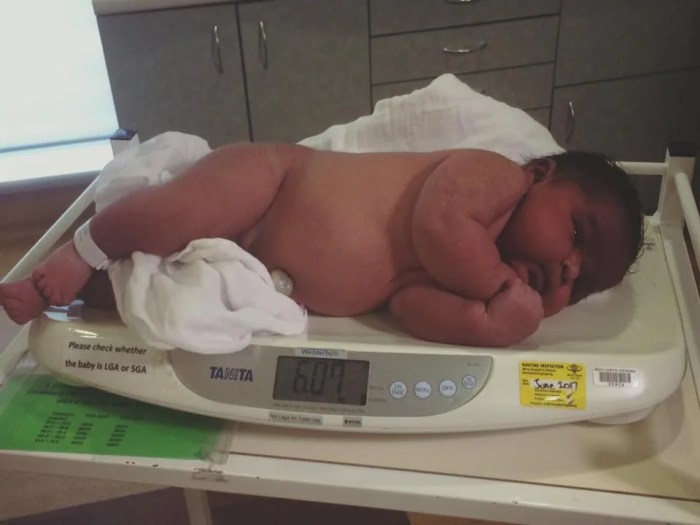Mass of a newborn baby 3000 – When it comes to the mass of a newborn baby, the average benchmark of 3000 grams holds significant implications for the baby’s health and well-being. From factors influencing birth weight to potential health outcomes, this topic unveils a fascinating exploration of the mass of a newborn baby and its multifaceted impact.
As we delve into the nuances of this topic, we will uncover the statistical variations in newborn mass across regions and ethnicities, examining the role of genetics, maternal health, and environmental conditions in shaping this crucial aspect of a baby’s development.
Statistics and Data

Globally, the average mass of a newborn baby is approximately 3.3 kilograms (7.3 pounds).
However, this average can vary significantly based on factors such as region, ethnicity, and gestational age.
Variations in Average Mass
- Region:Newborns in developed countries tend to have higher average birth weights than those in developing countries.
- Ethnicity:Certain ethnic groups, such as Asian and African newborns, may have lower average birth weights compared to Caucasian newborns.
- Gestational Age:Premature babies typically have lower birth weights than full-term babies.
Comparison of Average Birth Weights
| Country/Region | Average Birth Weight (kg) |
|---|---|
| United States | 3.4 |
| United Kingdom | 3.3 |
| India | 2.9 |
| China | 3.1 |
Factors Influencing Mass

The mass of a newborn baby is influenced by a combination of genetic, maternal, and environmental factors. Understanding these factors can help healthcare professionals provide optimal care and support during pregnancy and birth.
Genetics play a significant role in determining a baby’s mass. Parents who are taller or heavier tend to have babies with higher birth weights. Conversely, babies born to parents who are shorter or lighter may have lower birth weights.
Maternal Health
Maternal health during pregnancy can significantly impact the mass of the newborn. Good maternal nutrition, including a balanced diet and adequate intake of essential nutrients, is crucial for fetal growth and development. Conversely, malnutrition or undernourishment during pregnancy can lead to low birth weight.
Newborn babies typically weigh around 3000 grams. This is about the same as a small bag of sugar! As they grow, they will gain weight and become much bigger. In fact, they may even grow to be as big as their parents! Speaking of growing, don’t forget to check out our countdown to the math staar to help you prepare for the big test.
Just like a newborn baby, you’ll be growing your knowledge and skills in no time!
Smoking and substance use during pregnancy can also negatively affect the mass of the newborn. Exposure to nicotine and other harmful substances can restrict blood flow to the placenta, limiting the delivery of oxygen and nutrients to the fetus. This can result in intrauterine growth restriction and low birth weight.
Environmental Conditions
Environmental conditions can also influence the mass of a newborn baby. Exposure to toxins or pollutants during pregnancy can have adverse effects on fetal growth. Additionally, living in areas with high levels of air pollution or other environmental hazards can increase the risk of low birth weight.
Potential Causes of Low Birth Weight
- Maternal malnutrition or undernourishment
- Smoking or substance use during pregnancy
- Multiple pregnancies
- Premature birth
- Genetic factors
Potential Causes of High Birth Weight
- Maternal obesity
- Gestational diabetes
- Genetic factors
- Advanced maternal age
- Excessive weight gain during pregnancy
Health Implications: Mass Of A Newborn Baby 3000

Birth weight significantly influences a newborn’s health and development. Deviations from the ideal birth weight range can lead to various health complications and developmental issues.
Newborns with low birth weight (<2500 grams) face increased risks of:
- Respiratory distress syndrome (RDS)
- Hypoglycemia (low blood sugar)
- Jaundice
- Delayed growth and development
- Increased susceptibility to infections
On the other hand, newborns with high birth weight (>4000 grams) may also experience health concerns, such as:
- Shoulder dystocia (difficulty delivering the baby’s shoulders)
- Cesarean delivery complications
- Increased risk of obesity and metabolic disorders later in life
Clinical Management

Newborns with a mass of 3000 grams typically receive routine care and monitoring to ensure their well-being. However, infants with low or high birth weight may require specialized interventions or care.
Monitoring and Interventions
- Vital signs:Monitoring of vital signs, including heart rate, respiratory rate, temperature, and oxygen saturation, is crucial to assess the newborn’s overall health and stability.
- Feeding:Newborns with a mass of 3000 grams are typically fed on demand, either through breastfeeding or formula.
- Skin care:Regular skin care, including bathing and diaper changes, is essential to prevent infections and maintain the newborn’s comfort.
- Jaundice:Newborns may develop jaundice, a condition characterized by yellowing of the skin and eyes. Monitoring and treatment of jaundice may be necessary.
- Immunizations:Newborns receive a series of immunizations to protect them from various infectious diseases.
Specialized Care for Low Birth Weight Newborns, Mass of a newborn baby 3000
Newborns with a mass below 2500 grams are considered low birth weight and may require specialized care, such as:
- Incubator care:Low birth weight newborns may need to be placed in an incubator to maintain their body temperature and protect them from infections.
- Supplemental oxygen:Newborns with respiratory distress may require supplemental oxygen to support their breathing.
- Special feeding:Low birth weight newborns may need specialized feeding methods, such as gavage feeding or intravenous nutrition.
Specialized Care for High Birth Weight Newborns
Newborns with a mass above 4000 grams are considered high birth weight and may also require specialized care, such as:
- Blood sugar monitoring:High birth weight newborns are at an increased risk of hypoglycemia, a condition characterized by low blood sugar levels.
- Shoulder dystocia:High birth weight newborns may experience shoulder dystocia during delivery, requiring specialized maneuvers to assist with the birth.
Parental Concerns and Education

Welcoming a newborn into the world is an overwhelming experience filled with joy and concerns. The mass of a newborn baby is a common concern among parents, as it is an indicator of the baby’s overall health and well-being.
Understanding the significance of birth weight and its potential implications is crucial for parents to ensure the healthy growth and development of their child. This section will address common concerns and questions that parents may have regarding the mass of their newborn baby and provide evidence-based information and resources to educate them.
Addressing Common Concerns
- Is my baby’s weight normal?The average birth weight for a full-term newborn is between 2,500 and 4,000 grams (5.5 to 8.8 pounds). However, it is important to note that every baby is different, and there is a wide range of normal weights.
- What if my baby is underweight or overweight?Babies who are born underweight or overweight may require special attention and care. Underweight babies may need additional nutrition and monitoring, while overweight babies may be at risk for certain health problems.
- What factors can affect my baby’s weight?The mass of a newborn baby is influenced by various factors, including the mother’s health and nutrition during pregnancy, the baby’s genetics, and the length of gestation.
- What can I do to support my baby’s healthy growth?Parents can play a vital role in supporting their baby’s healthy growth by providing a nutritious diet, ensuring regular check-ups, and monitoring their baby’s progress.
Tips for Parents
- Breastfeed or formula feed your baby as recommended by your healthcare provider.Breast milk or formula provides the essential nutrients that your baby needs for growth and development.
- Monitor your baby’s weight regularly.Regular weigh-ins can help you track your baby’s progress and identify any potential concerns.
- Consult with your healthcare provider if you have any concerns.Your healthcare provider can provide you with personalized advice and support based on your baby’s individual needs.
User Queries
What factors can influence the mass of a newborn baby?
Genetics, maternal nutrition, smoking, substance use, and gestational age.
What are the potential health implications of a low birth weight?
Increased risk of respiratory problems, developmental delays, and long-term health issues.
What should parents do if they have concerns about their newborn’s weight?
Consult with a healthcare professional for assessment and guidance.